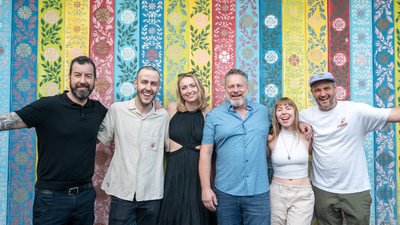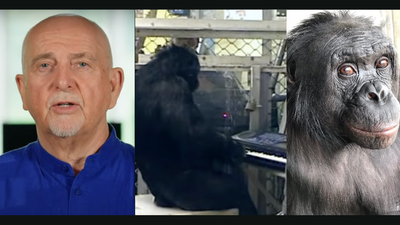Next week thousands of the most plugged in advocates, writers, business people, scientists, techies, farmers, and consumers of all stripes will converge in Austin, Texas, to think, share, and take action on the most pressing environmental and public health issues of our time. It's the annual SXSW ECO conference—my first ever—and I'm honored to have been invited as both a panelist and moderator.
As we count down to SXSW ECO 2013, here's a preview of what I'm most looking forward to talking about.
Fighting Superbugs on the Farm
Monday morning, I'll join "Pope of Pork" Russ Kremer, a fifth-generation diversified pork producer on the forefront of the movement for more sustainably-raised, antibiotic-free livestock, and Dr. Jason Newland, a pediatric physician and leading researcher on antimicrobials, for a panel we’re calling Fighting Superbugs on the Farm.
Antibiotics are one of the greatest medical breakthroughs in human history. So it's no surprise that more than 35 years ago, the U.S. Food and Drug Administration (FDA)—the agency we rely on to safeguard our food supply—determined that mixing antibiotics into animal feed and feeding it to the chickens, pigs, and cows that end up on our plates is a dangerous practice because it breeds antibiotic-resistant "superbugs" that threaten human health. Despite these findings, the agency has failed to take meaningful action to curb the misuse of these precious drugs in the livestock industry. Instead, antibiotic use in animal agriculture has exploded: today, 80 percent of the antibiotics sold in the U.S. are not used on humans, but instead on livestock animals. The vast majority are not used to treat sick animals, but to make animals grow fatter faster and prophylactically to help animals survive dirty, crowded, and stressful conditions in factory farms.
Antibiotic resistance has reached a crisis point, threatening the viability of many of our life-saving drugs. But it's not too late to right this ship if we begin to take action as consumers and concerned citizens. Our discussion will examine how we got to where we are, what's at stake and the solutions we need to stop the superbug crisis so that we can protect the efficacy of the precious medicines we rely on.
Addressing the Excess: Reducing U.S. Food Waste
Monday afternoon, I look forward to heading into the audience for Addressing the Excess: Reducing U.S. Food Waste, a panel featuring my colleague Dana Gunders. Each year, Americans are throwing away the equivalent of $165 billion in food, making food the single largest component of solid waste in our landfills, where it rots and releases methane, a powerful greenhouse gas. All that wasted food also means wasted land, water, and energy, resources we can't afford to lose. And it's happening at a time when one in six Americans is food insecure, making it not only a major environmental issue, but also a moral challenge.
Food waste is happening all along the chain from farm to plate. The good news is, the tides are shifting, and I'm proud to say that NRDC has played a major role in shining a spotlight on this issue. Dana will be joined by Doug Rauch, a former president of Trader Joe's, Tom Philpott, food and agriculture writer for Mother Jones, and Kavita Shukla, co-founder of Fenugreen, for what I know will be a spirited conversation about how farms, restaurants, grocery stores, and yes—we the consumer—can design waste out of the food system.
Food in the City
On Tuesday, I'll switch gears to explore the nexus of food and urbanism as moderator of a panel called Food in the City: Designing a Healthy Food Future. According the USDA, more than 13.6 million Americans live in food deserts, communities that are both low-income and lack sufficient access to a supermarket. At the same time, every minute, we lose more than an acre of agricultural land to commercial and residential development. One of the many ironies of our urbanism explosion is that we're literally paving over the land that feeds us.
But it doesn't have to be this way. NRDC's 2013 Growing Green Award winners Tezozomoc and Brianna Sandoval, together with Ron Finley, the "guerilla gardener," will share their passion for creating a better community food system with solutions ranging from putting healthy produce in corner stores to empowering historically marginalized communities to grow food right where they live. My job will be to help highlight the stories of these inspiring innovators, explore how they're serving up better, healthier community food systems in urban areas, and catalyze a discussion of what’s next for the urban food justice movement.
Unsurprisingly, SXSW is serving up more than insightful and engaging panel discussions. The number of keynote and distinguished speakers, meetup events, film screenings, book signings and workshops I want to check out is almost too numerous to count. The full SXSW ECO 2013 program guide is now up online so you can start planning your ultimate conference experience if you haven’t already.
Image by Miguel Gonzales courtesy of SXSW Eco













